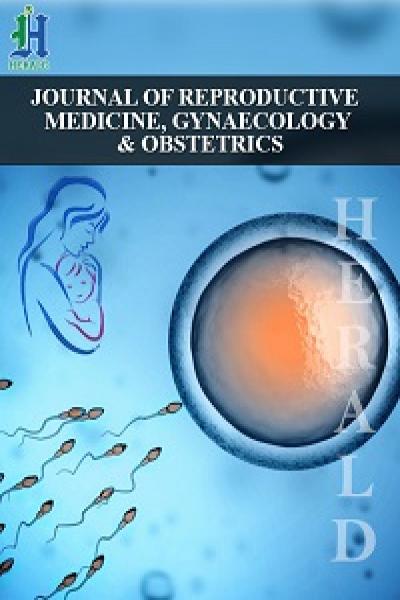
Ultra-Processed Foods, Nutrition and Pregnancy: Characteristics of Food Consumption by HIV-Positive Women during Pregnancy
*Corresponding Author(s):
Clarissa De Oliveira AgostiniUniversidade Federal Do Rio Grande Do Sul, Porto Alegre, Rio Grande Do Sul, Brazil, Department Of Nutrition, Universidade Federal Do Rio Grande Do Sul, Porto Alegre, Rio Grande Do Sul, Brazil
Tel:+55 5199881-2604,
Email:clarissaagostini@hotmail.com
Introduction
This article aims to provide a commentary on the article “Contribution of Ultra-processed Food to the Daily Food Intake of HIV-positive and HIV-Negative Women during Pregnancy”. Pregnancy causes physiological changes in the woman’s body, modifying her nutritional needs, as well as food intake. If the supply of macro and micronutrients is inadequate, there may be competition between the mother and the fetus, limiting the availability of the necessary nutrients for the proper growth of the fetus [1,2]. Women with HIV have increased energy and nutritional needs during pregnancy and inadequate dietary intake, deficient in micronutrients and macronutrients, could increase the risk of the disease’s vertical transmission and progression, increase the chance of opportunistic infections and affect the effectiveness of antiretroviral drugs [3,4].
In the article, the authors aim to assess the daily dietary intake and the contribution of ultra-processed foods to positive and negative HIV women during pregnancy. Ultra-processed foods are industrial formulations made entirely or, for the most part, from food substances (oils, fats, sugar, proteins), derived from food constituents (hydrogenated fats, modified starch) or synthesized in the laboratory based on organic materials such as oil and coal (dyes, flavorings, flavor enhancers and various types of additives used to provide products with attractive sensory properties) [5]. They have micronutrient deficiencies, as these are found in smaller quantities than those found in fresh or minimal foods processed, this type of food being a nutritional problem of great magnitude worldwide. The consequences caused by micronutrient deficiencies are of great relevance to public health, especially during pregnancy [6].
Our work showed that the calories from the ingestion of ultra-processed foods corresponded to around 40% of the daily VET of pregnant women. This high consumption was associated with a lower intake of proteins and fibers and a higher consumption of carbohydrates, trans fats and sodium. HIV positive people consumed less protein, carbohydrates and calcium and more total fats. Our findings reflect the huge increase in the consumption of ultra-processed foods worldwide. However, their consumption is related to important nutritional deficiencies. The importance of adequate nutrition during pregnancy for adequate fetal development is well established in the literature. Therefore, our findings reinforce the importance of adequate nutrition during pregnancy, especially in this HIV-positive women, in order to avoid unfavorable maternal and fetal outcomes.
References
- Bhutta ZA, Das JK, Bahl R, Lawn JE, Salam RA, et al. (2014) Can available interventions end preventable deaths in mothers, newborn babies, and stillbirths, and at what cost? Lancet 384: 347-370.
- Goldstein RF, Abell SK, Ranasinha S, Misso M, Boyle JA, et al. (2017) Association of Gestational Weight Gain With Maternal and Infant Outcomes: A Systematic Review and Meta-analysis. JAMA 317: 2207-2225.
- Mehta S, Manji KP, Young AM, Brown ER, Chasela C, et al. (2008) Nutritional indicators of adverse pregnancy outcomes and mother-to-child transmission of HIV among HIV-infected women. Am J Clin Nutr 87: 1639-1649.
- Raiten DJ, Grinspoon S, Arpadi S (2005) Nutritional considerations in the use of ART in resource-limited settings. Consultation on Nutrition and HIV/AIDS in Africa: Evidence, lessons and recommendations for action. World Health Organization, Geneva, Switzerland.
- Ministério da Saúde (2014) Guia alimentar para a população brasileira (2ndedn). Ministério da saúde, Brasília.
- Louzada MLC, Martins APB, Canella DS, Baraldi LG, Levy RB, et al. (2015) Alimentos ultraprocessados e perfil nutricional da dieta no Brasil. Rev Saúde Pública 49: 38.
Citation: Agostini CO, Zoche E, Corrêa RS, Chaves EBM, Corleta HE, et al. (2021) Ultra-Processed Foods, Nutrition and Pregnancy: Characteristics of Food Consumption by HIV-Positive Women during Pregnancy. J Reprod Med Gynecol Obstet 6: 072.
Copyright: © 2021 Clarissa de Oliveira Agostini, et al. This is an open-access article distributed under the terms of the Creative Commons Attribution License, which permits unrestricted use, distribution, and reproduction in any medium, provided the original author and source are credited.

